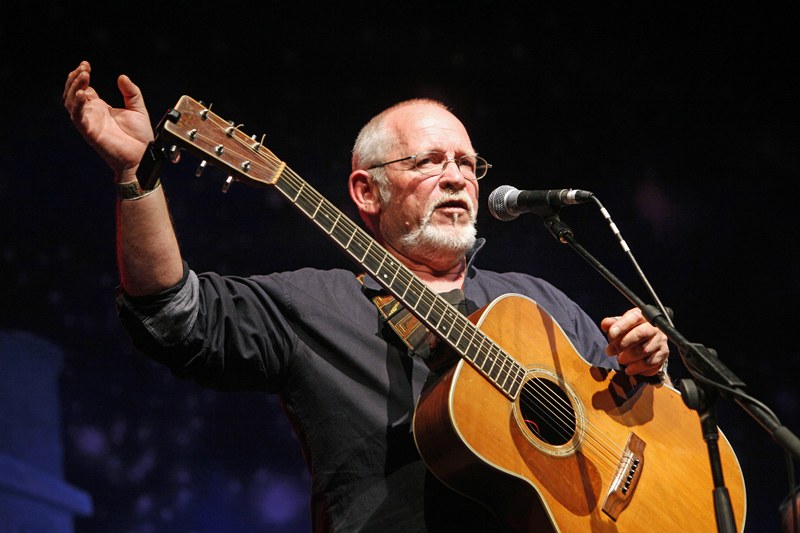At seventeen, it was politics that pushed him into folk music: Who is Eric Bogle?
The most famous song of Eric Bogle, who loved the songs of the working class and therefore preferred to make folk music, is And the Band Played Waltzing Matilda. He wrote this song after watching a parade of elderly Gallipoli combatants on ANZAC Day in Canberra in 1972.

Internationally famous folk singer Eric Bogle was born in 1944 in Peebles, Scotland, about 29 miles northwest of Edinburgh, with a population of only 5000.
He left school when he was sixteen years old: For nine years, he tried to earn his living in several different jobs such as laborer, bartender, export business follower, etc.
In 1969, when he was twenty-five, he immigrated to Australia, whose stories were told as the "land of sun and money", and settled in Canberra, where his older sister lived.
Eric Bogle (born 23 September 1944) is a Scottish-born Australian folk singer-songwriter. Born and raised in Scotland, he emigrated to Australia at the age of 25, to settle near Adelaide, South Australia. Bogle's songs have covered a variety of topics and have been performed by many artists. Two of his best known songs are "No Man's Land" (or "The Green Fields of France") and "And the Band Played Waltzing Matilda", with the latter named one of the APRA Top 30 Australian songs in 2001, as part of the celebrations for the Australasian Performing Right Association's 75th anniversary.
After completing his education, he found a job as a laborer on a construction site in Fyshwick; He worked as an accountant for several years.
He started his career in music in Australia. He researched folk music for a long time in Canberra, and eventually took part in the community of Colin McJanet, Bob Rummery, and Bob McInnes.
He settled in Adelaide in Southern Australia. Bogle was recently awarded the Australian Medal for his activities in promoting racial equality. He doesn't remember exactly when this happened, but he says he distinctly remembers having to buy a tie.
In an interview with him, he says:
"It was politics that pushed me into folk music when I was seventeen. Folk music expressed what I heard inside me. It was through folk music that I came to Scottish music. In those days, rock music was full of Tin Pan Alley trash who had nothing to say, and folk music was the voice of the people." "It is the music of the people that reaches you and surrounds you. I loved Jeannie Morrison, who sang the songs of the working class, for example, the songs of the workers of the jute mills."
Eric Bogle, who had been writing songs since 1971, wrote his most famous song, And the Band Played Waltzing Matilda, after watching the parade of elderly Gallipoli combatants on ANZAC Day in Canberra in 1972. He played and sang the song himself, but did not record it. In Ireland in 1976, The Band Played Waltzing Matilda, performed by the Clancy Brothers, became a top hit.
Bogle says the following in a conversation with him. "I wrote it, but I didn't like it very much. It was eight verses long. It took fifteen minutes to say it; people fell asleep and a lot of people went to the toilet. I reviewed it again and said to myself, "Well, I've said that, why am I saying that again?" "The first lesson I learned in songwriting is this: Write what you want to say and say it in as few verses as possible."
